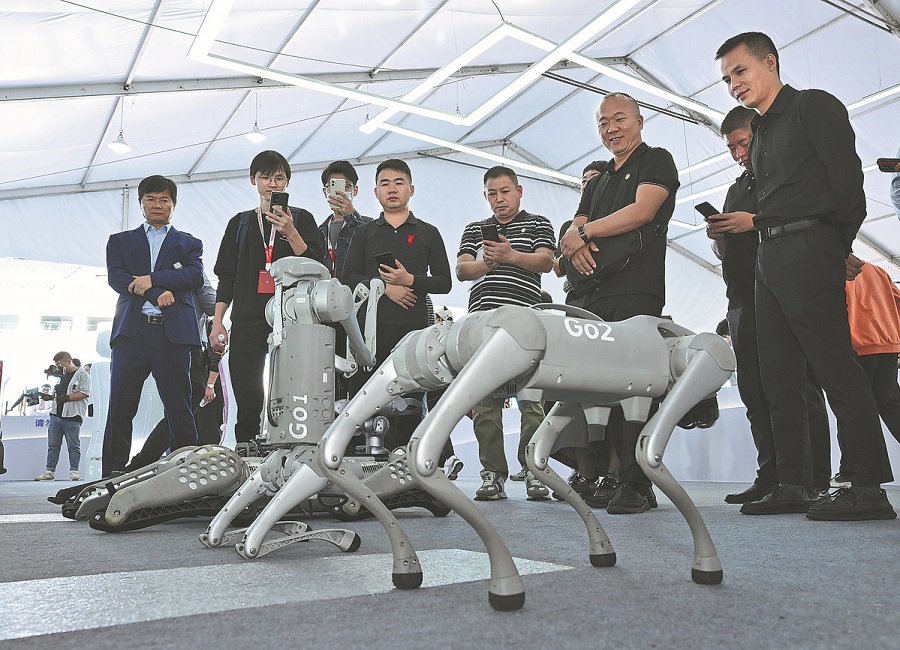Deputy calls for national plan for AGI development in the country

Visitors look at an iFlytek robot during an expo in Hefei, Anhui province. [Photo/Xinhua]
As artificial intelligence takes the world by storm, efforts are needed in China to draft a national plan to boost the development of artificial general intelligence, the latest tech frontier that is a key part of new quality productive forces, said a national legislator.
AGI refers to AI's versatility in doing multiple tasks such as writing essays, checking program bugs and making business plans. This differentiates it from previous narrow AI projects that excel in only one area. The emergence of AI chatbot ChatGPT and the text-to-video generation tool Sora triggered widespread discussion regarding the rapid development of AGI.
Highlighting global competition in the sector, Liu Qingfeng, a deputy to the National People's Congress and chairman of Chinese AI company iFlytek, said there is a need for China to draft a national development plan for the latest tech frontier.
"We need to address the gaps and focus on the 'main battlefield' of large language models. We must concentrate national resources to catch up rapidly while systematically constructing the ecosystem and applications for AGI," Liu said.
The comments came after the Government Work Report submitted on Tuesday to the national legislature for deliberation said that China will step up research and development, applications of big data and AI, as well as launch an AI Plus initiative and build digital industry clusters with international competitiveness.
Liu said that after China unveiled a new-generation AI development plan in 2017, the country has accumulated technical reserves and organized teams in the field of cognitive intelligence, making it an important player in the global AI arena.
But with the emergence of generative AI technology, global competition has intensified to new heights and China lags behind the US in key aspects, Liu said. Generative AI refers to computer algorithms that produce new text, images, code, videos or audio in a human-like fashion. It is the key technology behind ChatGPT and Sora.
"So, on the basis of the 2017 AI plan, I called for efforts to draft a new national development plan to systematically address the shortcomings in China's AI development," Liu added.
He said the plan should involve key areas such as building a powerful computing power ecosystem, high-quality data sharing, scientific evaluation standards, forward-looking technological R&D, talent cultivation, legal frameworks and ethical considerations.
Liu expressed confidence that with concerted efforts in computing power, data and model training resources, China could narrow the gap with the US.
Goldman Sachs Research forecast in a report that breakthroughs in generative AI can drive a 7 percent, or almost $7 trillion, increase in global GDP and raise productivity growth by 1.5 percentage points over a 10-year period.
Well aware of the opportunities ahead, established tech heavyweights such as Alibaba, Tencent, Baidu, ByteDance, iFlytek and Huawei, as well as thousands of startups in China, are scrambling to develop and embrace large language models.
Chi Xiannian, a senior engineer at the China Center for Information Industry Development, a think tank affiliated with the Ministry of Industry and Information Technology, said finance, manufacturing, governance and transportation are the top industries in China to use AI large language models.
- Top legislature schedules standing committee session for late February
- China's top legislator meets with Uruguayan president
- Senior legislator surveys Anhui on formulating outline of provincial 15th Five-Year Plan
- China's top legislator meets with British PM
- NPC deputies see more engagement with top court



